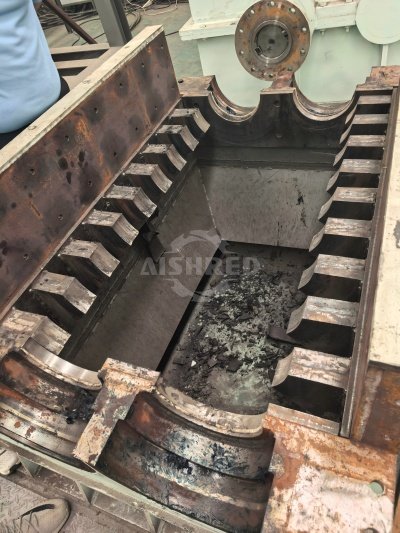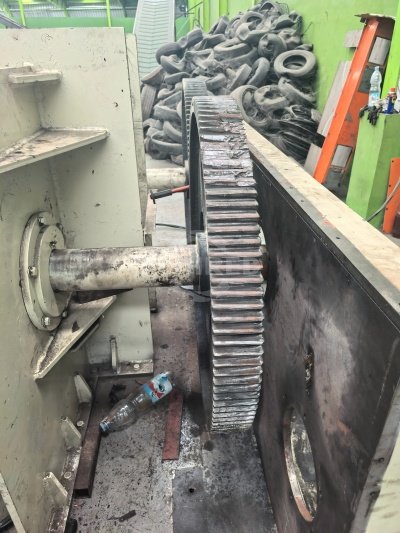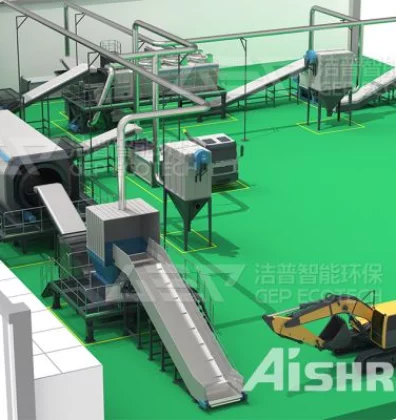In the tire recycling industry, waste tires hold tremendous value—they represent not only an environmental challenge but also a profitable opportunity. Over the years, we have received numerous inquiries from companies around the world, and each case has given us deeper insight into the real challenges faced by operators. With so many suppliers in the market, it can be difficult to make the right choice, especially when prices vary so widely. At the same time, increasingly stringent environmental regulations require heavy investment, while demand for end products is shifting and market prices are falling, thus leading to their profitability under pressure. What's more, further challenges are lying in high maintenance costs. Certain key wear parts cannot be substituted and must be purchased at a premium, driving up operating expenses even more.
Meanwhile, the market is filled with suppliers who make exaggerated claims and false promises, misguiding buyers who focus solely on low prices, leading them to make wrong decisions that create hidden costs in the long run. Therefore, the key to selecting a reliable Tire Recycling Plant supplier is to identify true value, eliminate risks, and avoid common pitfalls.
One of our clients once shared a painful lesson. They had purchased a Waste Tire Shredder from another supplier that promised a capacity of 8 TPH. In reality, the shredder struggled to process even 2 TPH, and only after one month, critical components began to fail. The tire debeader was practically unusable, and the so-called double-shaft gearbox turned out to be a crude, self-made unit from a small workshop. Its housing was thin and fragile, the main shaft was nothing more than a hexagonal 45# steel bar, and the machine's poor alignment led to constant breakdowns.


Worn-out cutterbox and broken components
Unfortunately, this is not an isolated case. Many low-price suppliers rely on the same tricks:
- Exaggerated paper data and unlimited promises;
- Inferior materials and weak designs;
- Workshop-style factories with no quality control whatsoever.
At first glance, the price tag may seem attractive, but the hidden costs of downtime, repairs, and lost production quickly outweigh any initial savings.
These issues are not just numbers on a report—they leave visible scars on the machines themselves. Cracked housings, deformed shafts, worn-out gearboxes, and broken components tell the real story behind “cheap deals.” Below are some actual examples of what happens when equipment is built with shortcuts instead of quality.
Experiences like these highlight a hard truth: in tire recycling, the real cost of equipment is not the purchase price, but its long-term reliability and performance. To help customers avoid such pitfalls, we've summarized 6 key factors to consider when selecting a reliable tire recycling plant supplier. These insights come from years of project experience and lessons learned from clients around the world.
1. Be careful of low-quality equipment from unscrupulous intermediaries
Some small factories that cooperate with intermediaries have outdated technology, poor materials, equipment that frequently malfunctions, and unstable performance. The money saved at the beginning was ultimately spent on repairs and shutdowns. So it is necessary to find reliable manufacturers—those with technology, factories, advanced production and testing equipment, as well as reliable quality control and after-sales service. Only in this way can the equipment be stable and the investment be worth it.
2. Pay attention to the management level of the factory
The workshop is not clean and the equipment is not neatly arranged, which directly reflects the professionalism of the factory. A dirty, messy, and poor workshop often lacks quality control and carries high risks. Conversely, a clean and orderly factory is more reliable and easier to produce durable and reliable products. Selecting a well managed factory means selecting one that is worry free and stable.
3. Budget should be reasonable. Don't just aim for cheap prices
If the budget is too low, it often sacrifices quality. Cheap equipment is prone to breakage, expensive to repair and delays production, which actually burns more money. A reasonable budget is necessary to purchase equipment with mature technology and stable operation, which is more cost-effective in the long run.
4. Be alert to irresponsible casual promises
Some suppliers boast excessively about high production and strong results, but in reality, they simply cannot achieve them. What sounds too good often hides pitfalls. A reliable supplier will provide real data, open trial runs, and show you existing customer cases, rather than just empty promises.
5. Cost-effectiveness should also be considered, due to limited budget
It's not necessary to select the cheapest option even if you don't have enough money. Cheap devices have more malfunctions and shorter lifespans, but in the long run, they actually burn more money. You can consider reducing the configuration, investing in stages, or selecting models with higher cost-effectiveness. The core requirements cannot be lost.
6. Focus on Delivery Quality
When choosing a tire recycling equipment supplier, don’t focus on the machines alone. Large production lines involve many pieces of equipment that need to work together, requiring smooth coordination across multiple stages. Ensure the equipment fitting seamlessly and professional engineers can quickly commission and fine-tune the system. A reliable supplier delivers not just the machines, but a complete solution that runs stably and efficiently.
Selecting a tire recycling plant supplier is not just about finding a machine—it's about securing a long-term investment that drives your recycling business forward. By considering the supplier's experience, product quality, engineering design, and service reliability, you can avoid costly mistakes and ensure stable production. Remember, cheap machines may save money today, but they often create bigger losses tomorrow. Always prioritize quality, proven performance, and trustworthy partnerships.
GEP ECOTECH, as a leading Industrial Shredder Manufacturer in China, is dedicated to providing reliable, high-performance tire recycling solutions backed by real project cases worldwide.If you're planning to invest in tire recycling plant, let's talk about how we can help you achieve efficient, sustainable, and profitable operations.


